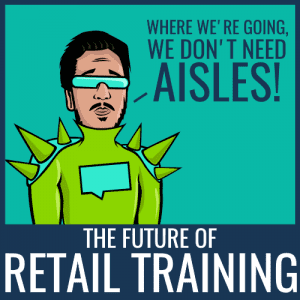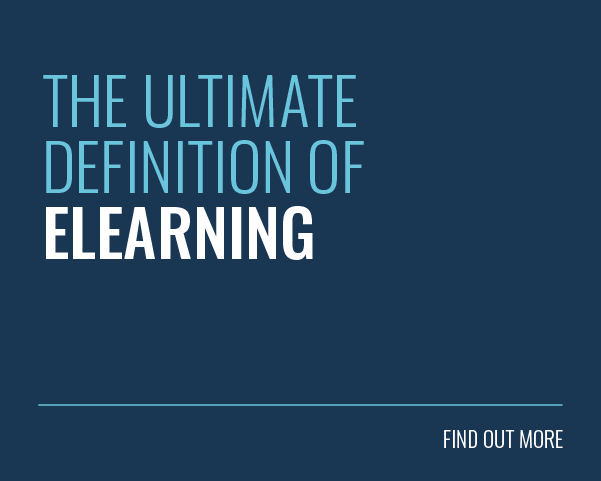 The future of retail promises big changes. The typical retail role of today will be completely unrecognisable ten years from now. Online shopping is set to dominate, meaning the skillset will move away from stacking shelves and manning tills, and towards managing social media, maintaining eCommerce websites and providing remote customer support.
The future of retail promises big changes. The typical retail role of today will be completely unrecognisable ten years from now. Online shopping is set to dominate, meaning the skillset will move away from stacking shelves and manning tills, and towards managing social media, maintaining eCommerce websites and providing remote customer support.
Despite the challenges of retail, the bricks-and-mortar stores won’t disappear completely. They may end up being fewer in number, but their nature will evolve.
The typical store will be something more like a showroom where customers can spend time immersing themselves in the brand, rather than being another unit in a shopping complex to pop into. This will generate a demand for employees with a high standard of customer service and a firm grasp of the vision and values of the organisation.
Retailers selling fast moving consumer goods, like food and groceries, probably won’t see such a dramatic shift towards online shopping, but those that survive will do so by adapting to quickly shifting consumer trends. Just like higher-end retailers, they’ll need to differentiate in terms of providing an outstanding customer experience.
With all of these changes, training managers will need to stay on their toes to ensure that the employees have the skills they need.
Online Learning Becomes the Norm
 As online shopping overtakes physical stores, the lines between the two will blur, meaning that in-store staff will need to stay connected. If the employees will be trained to deal with online processes, it makes sense then, that the rest of their training is also conducted online.
As online shopping overtakes physical stores, the lines between the two will blur, meaning that in-store staff will need to stay connected. If the employees will be trained to deal with online processes, it makes sense then, that the rest of their training is also conducted online.
One of the key benefits of this is that online learning technologies will also grow to incorporate more social features. The added communication between employees adds another string to the training bow.
Shift Towards Informal Learning
Consumer behaviour will always be in constant flux and formal training will struggle to keep up with it. That’s not to say it won’t have its place in the retail training of the future.
As ever, it’ll play an essential role in laying the groundwork, but after that, employees will largely need to play it by ear, learn as they go and adapt a unique approach for each individual store. Once again, online social learning platforms will allow learner-generated content, knowledge sharing and it will mean that all employees get the information they need as soon as they need it.
 Individual Expertise is Recognised
Individual Expertise is Recognised
With a more organic training programme in place, learners will be able to contribute more and explore the avenues that appeal to them. As well as social features, these online platforms will incorporate gamification elements, letting all users score points for sharing useful information.
This creates a system that automatically highlights the people who know the most about individual topics. The platform administrators will then be able to grant them expert status.
This means that when a new pattern of customer behaviour emerges, other users can quickly find the information they need to deal with it.
Employees Engage More with Training
The mix of social and gamification features creates a learning experience that’s entirely different from the notoriously dull training of bygone days. Instead of passively reading manuals or watching videos, the learners will feel like active contributors to a growing resource of intellectual capital.
They won’t just be the recipients of training – they’ll be part of a learning community. As learning technologies embrace mobile, this collaborative approach to learning will grow even more. Instead of accessing an intranet once in a blue moon, they’ll be connected to their training platform at all times. This means that when one employee spots an opportunity, everyone else in the organisation can capitalise on that trend in a matter of hours.
What Does This Mean for Learning Managers?
The democratisation of the learning process doesn’t necessarily mean that learning managers and platform administrators will be out of the job. On the contrary, the increased engagement in the training programme will create a greater need for learning coordinators to hone and focus the efforts of everyone in the company.
They too will need to develop their skillset to adapt a more collaborative approach and effectively rally all learners to action. This increased engagement will set the bar higher in terms of the learners’ expectation, so they’ll need the skills to meet that demand and provide even more engaging and interactive learning content.
Progress in the field of content authoring means that they’ll have a much easier job. Even now, tools exist that can let them create high-quality learning games from their existing content. If you want to learn more about these exciting new developments, download our brand new white paper.









